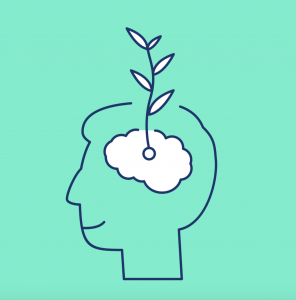Using Wellness Tools to Recover from an Injury
Using Wellness Tools to Recover from an Injury
It’s important to think about your mental health and wellbeing in the same way you do your physical health. After all, being emotionally strong can be just as important as being physically fit. Your mental wellbeing can help you deal with emotional challenges and help you maintain positive relationships with yourself and those around you, which is important if you want to be confident and happy within yourself.
There has been much debate over the topic of whether mental health and physical health can impact each other. Many believe the two are very closely linked, which could have some interesting effects on your overall health. An online service titled Wellbeing365 takes a look at how wellbeing could help you recover from illness, both physical and mental.
The Connection Between Physical And Mental Health
Physical health problems can significantly increase the risk of poor mental health, and it works the other way around too. A large percentage of people who have a physical health condition, particularly long-term, will often find they suffer from a mental health problem too. In most cases, this is depression or anxiety.
It is commonly thought that your beliefs, thoughts and feelings can influence your biological functioning, and how you treat your physical body can influence your mental health. So, if you feel down, you could become more susceptible to physical illness too, and this will have a knock on effect of how well you recover from illness too.
There are many reasons for this, including your body’s physical response to mental states. The fight-or-flight response in particular is a great demonstration of how we feel manifesting itself in a physical response.
Recovering From Physical Illness With A Positive Attitude
There is a lot to be said for looking at the world with a positive mindset. Living a balanced life, developing resilience and practicing self-care can all help you to achieve a more positive approach to life and change how you feel. It can leave feeling much more confident and aware of your environment, which in turn can help you to remain physically healthy.
Being mindful of sleep and diet is another element of your mental wellbeing that also impacts your physical health. After all, a poor diet or sleep deprivation can often lead to health issues and being at risk of developing a number of conditions. If you find yourself sleeping badly or feeling down, it’s more likely you will crave comfort or junk food, and if this goes on for too long you could experience a weakened immune system.
Having a positive mental attitude can not only lower rates of stress, but can help you to experience better cardiovascular health too as well as developing a greater resistance to illnesses like a cold. The reasons aren’t completely clear, but it’s likely that by coping better with stressful situations, you can reduce the harmful health effects that stress can have on your body. So, if you begin developing a physical illness, it could be your body’s way of telling you to check your mental wellbeing.
Staying Active
Keeping active and exercising regularly is one of the best ways to improve your mental and physical health at the same time as helping you to recover from illness. When you exercise, your body releases endorphins, which are known as the feel-good chemical. Endorphins can help with sleep and concentration.
Going for a walk, doing a yoga class or hitting the gym can all have a great impact on how you feel in your mind and your body, making it a great remedy to ensure you bounce back from illness or feeling down.
Meditating
Meditation involves focusing your mind continuously on one thought, word (mantra), object, or mental image for a period of time. It can also involve focusing on your breathing or on sensations in your body. The goal of meditation is to quiet your mind. Meditation leads to changes in the body known as the relaxation response. These changes accompany deep relaxation and may include:
- Reduced heart rate and blood pressure
- Reduced respiratory rate and oxygen consumption
- Reduced blood flow to skeletal muscles
- Reduced muscle tension
- Increased immunity (resistance to or recovery from illness)
- Increased energy, awareness, and mental focus
Researchers have studied relaxation therapies, including meditation, as a way to treat a number of conditions, such as:
- High blood pressure
- Fibromyalgia
- Anxiety disorders
- Depression
- Insomnia
There are many apps that are great for beginning meditators such as Calm, Breathwrk, Breeze, and HeadSpace
“How to Meditate?” FoundHealth, www.foundhealth.com/meditation/how-to-meditate.
Williams, Sarah, and Sarah Williams. “How Can Wellbeing Help Us Recover from Illness?” The Art of Healthy Living, 22 July 2021, artofhealthyliving.com/how-can-wellbeing-help-us-recover-from-illness/.
Join Our Community
Archives
- January 2023
- December 2022
- September 2022
- August 2022
- June 2022
- May 2022
- April 2022
- March 2022
- February 2022
- January 2022
- December 2021
- November 2021
- October 2021
- September 2021
- August 2021
- July 2021
- June 2021
- May 2021
- March 2021
- September 2020
- August 2020
- July 2020
- June 2020
- May 2020
- April 2020
- March 2020
- February 2020
Subscribe

Sign up to receive FREE toolkit
From Dr. Hyman, #1 NY Times & Amazon Author
We never spam or sell your e-mail








Follow Our Every Move